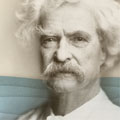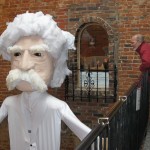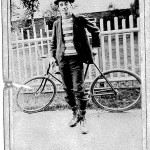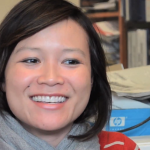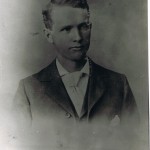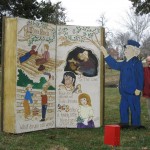Four decades before the Occupy Wall Street message spread across America, the New Yorker published on September 26, 1970, a nearly 70-page article, “Reflections: The Greening of America,” by Yale Law School professor Charles Reich that spread a message about a student-generation counterculture that sought “a more human community.”
Reich’s zeitgeist article generated more letters to the New Yorker than any other article in the magazine’s history. Among non-New Yorker readers, the article also provoked excitement. Even my 5,700-circulation, mill-town Southbridge (Mass.) Evening News, which published the article along with local pro-and-con reactions, generated a barrage of brickbats and bravos. Random House soon published The Greening of America as a book that went into its fifth printing in less than two weeks, topped bestseller lists and eventually sold more than two million copies.
Reich, the former editor-in-chief of the Yale Law Journal and the admired scholar of property and civil liberties law, suddenly became an instant celebrity, portrayed in the “Doonesbury” comic strip and sought daily by the media for sound bites. He said the media were “trying to turn me into a fifth Beatle.” The Washington Post’s Don Oldenburg wrote that “so desperate were the media for a piece of Charles Reich that when he turned down its offer, the ‘Today Show’ scheduled Yale’s chaplain, William Sloane Coffin, as a friend of Reich’s.”
Despite the popularity of The Greening of America, or possibly because of it, many academic and media critics savaged the book. Newsweek’s Stewart Alsop called it “scary mush.” Harvard Law School’s Charles Fried dismissed Reich as a naïve, “pop-fadist cult” romantic and The Greening of America as a “bad book,” slipshod, incoherent and silly.
“The Greening of America did me in as far as academe was concerned,” Reich says today. “I would never be the same after that.” He resigned from the Yale Law School faculty and in 1974 moved to San Francisco. “It was with the goal of being as far away as I possibly could be still in the United States—as far away from New York, where I grew up, New Haven, Washington, D.C.—to get some distance from my former life.”
How does he feel about today’s counterculture movement, Occupy Wall Street? “They’ll never get anywhere with what they’re doing now because they’re appealing to someone else to do something,” whether it be Congress, President Obama or the business community, Reich says. “My message is: ‘You’re going to have to do it yourself.’”
Reich sees plenty to do. He worries about the two million inmates in U.S. prisons, the spread of nuclear weapons (“I’m not sure we won’t blow ourselves up completely in the next few years”), the role of the U.S. military, at a cost of $1 million per soldier a year, in Japan and other countries, and the “scandal and disgrace” of the U.S. economy, with millions of jobs sent overseas, sometimes with tax support.
Our economy “is much worse than the Democrats are willing to say,” Reich continues. “If you’re over 50 and you lose your job you’re not going to get another one. You’re going to live to be 80 and how are you going to support yourself for 30 years?”
Contrasting his attitude during the 1960s, when he taught law, believed in reform and felt he was “doing some good,” he sees himself today as “a dissenter in my own country.” He says: “I don’t like what is going on. I don’t think this is a good future.” He echoes a concern he expressed in The Greening of America about the United States having become a corporate state “taken over by a small minority of powerful interests. I don’t think we’re a democracy anymore.”
But Reich, 84, sees greater tolerance today among Americans than in the past. He recalls growing up in New York where “black people were not allowed to come in the front door” of his apartment building and had to use the service elevator. The progressive private schools he attended—City and Country School and Lincoln School—were not so progressive. They had no African-American students.
He began his law career in 1952, at a time of discrimination against Jews and women as well as blacks and people of other races and ethnicities. At Cravath, Swaine and Moore in New York, where all the lawyers and stenographers were male, Reich says his boss, Donald C. Swatland, told him, “Women are frivolous, women belong at home, women are not designed for business.”
Reich, who is gay, fails to see “how anybody can object to expanding marriage to include any two people—two grownups—who want to live together.” But he downplays his gay identity. “I represent a different group—an unknown minority, probably 40 million or more—people who live alone. I’m a person who can’t live with another person and that trumps sexual orientation completely. My sexual orientation now has almost no relevance to my life.”
As we leave Reich’s San Francisco apartment, the floors of every room and hallway stacked high with books, he reiterates that he is a dissenter, but a dissenter with hope. I recall his earlier comment about his life as an older person who walks with a cane. When he climbs on a bus, people rush to give him a seat. “You get the best of human nature….I get the feeling that people are very nice.”
Loren


